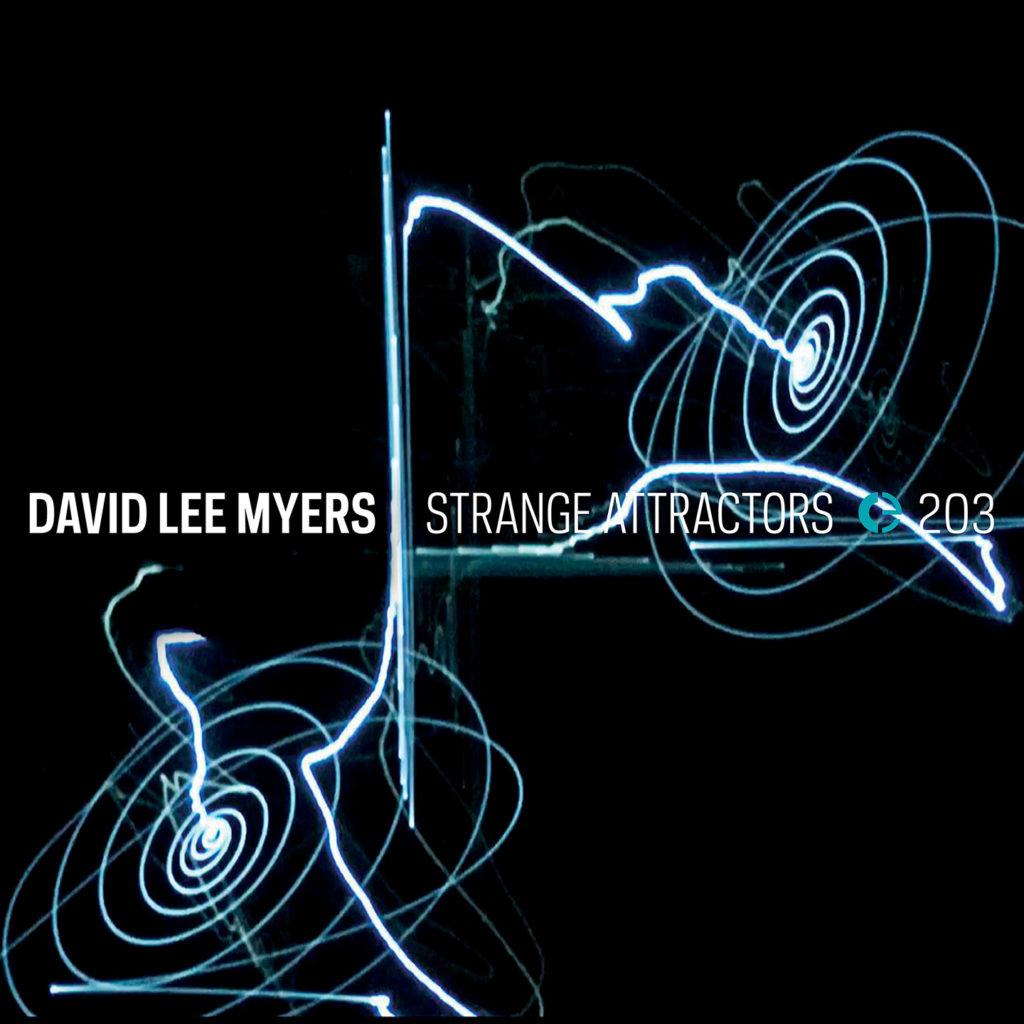
Multiple feedback, layers of noise and found sounds undergo several treatments being modified by a series of stereo digital delay units whose parameters (delay time, reverse, freeze, etc.) are manipulated in real time through a low-frequency oscillator or from other analog sampling devices. Many regulations are manual and are made live, with the purpose of making the creation process even more dynamic and engaging. David Lee Myers, also known under the moniker Arcane Device, is a sound and visual artist living in New York City, a sort of artisan of technology, who produces music based on the actions of automatized systems and techniques since 1987. Strange Attractors is somehow a compendium of his extremely varied sound practices, always evolving, also applied to modular devices, synthesizers and other mysterious machines producing auditory emissions. This is already his second release with Crónica, which completes an already huge and full of collaborations (Tod Dockstader, Asmus Tietchens, Thomas Dimuzio and Gen Ken Montgomery, among the others) discography. The work begins with the resounding “Equability of Powers”, a composition not far from the tradition of the American repetitive music, in an eternal return of the identical, that here is surrounded by a conspicuous series of vibrational events, as hisses, trills, ringing, blows and clamors. In “Iniquities”, another extended track, the tremors are less accentuated, and instead there is a dense noise, together with some almost melodic hints and vortices, which give the idea of the diversity of tones and polyrhythmic variants brought into play. Also in “With Perfect Clarity”, the sequences deal with some refrained time, folded on itself and modulated according to other forms, while in “Yet Another Shore”, the final track, everything assumes also a sacral hint, in an apology of the “here and there”, or, if you prefer, the eternally existing, an approach derived from a meditative and spiritual sensitivity. Lee Myers call all of this Time Displacement Music., and in addition underlines that all the music is based on the time, clearly a philosophical paradox, if then it’s contextually claimed that then time does not exist and actually it’s a convention, a propriety of the reality to change from a status to another, according to the principles of entropy and cause-effect. Aurelio Cianciotta
via Neural
